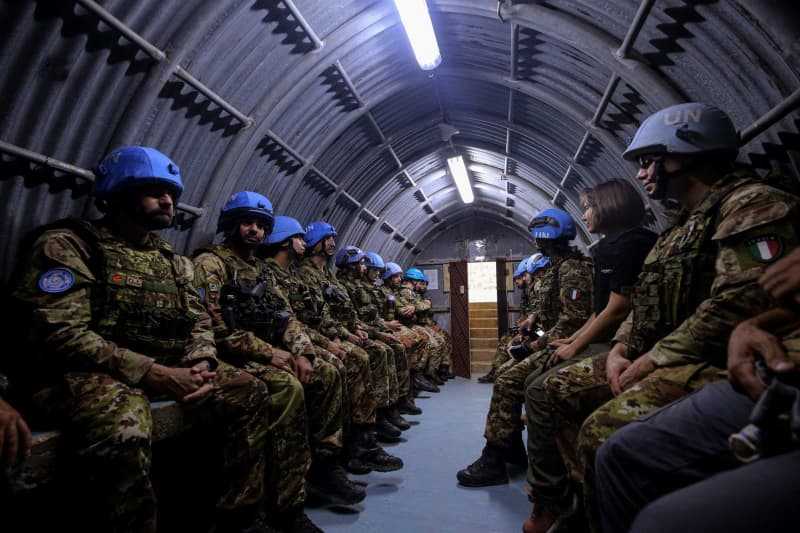Countries participating in the United Nations mission in Lebanon, particularly the UN Interim Force in Lebanon (UNIFIL), have recently expressed alarm over a series of attacks on peacekeepers stationed in the region. On Saturday, a statement initiated by the Polish representative to the UN garnered support from 40 nations, highlighting the vital role UNIFIL plays in seeking stabilization and lasting peace in South Lebanon and the broader Middle East. Amid increasing tensions that have followed the escalation of violence since the Gaza war began a year ago, the collective statement emphasizes the necessity for all parties involved to respect the safety and presence of UN peacekeepers, who serve as “Blue Helmets” in the conflict-stricken region.
The backdrop to this statement lies in the ongoing hostilities between Israel and Lebanese Hezbollah militia, which have intensified along the border area since the onset of the Gaza conflict. UNIFIL, comprising about 10,000 troops from nearly 50 countries, has been tasked with monitoring the volatility in this border region. With peacekeepers facing serious threats, in just the past few days alone, there have been multiple incidents leading to injuries and fatalities among UN personnel. This worrying trend has prompted the international community to call for an immediate cessation of attacks on UN forces and a thorough investigation into the incidents.
Notable signatories of the recent statement include major European powers such as Britain, France, Italy, and Spain, as well as countries like China and Germany. The collaborative effort underscores a unified stance in condemning violence against peacekeeping forces and reiterates the commitment of these nations toward ensuring the safety of UNIFIL personnel. The attacks on the peacekeepers specifically come at a time when their mission is more critical than ever, with the UNIFIL mandate designed to maintain stability and protect civilians in a region fraught with geopolitical tensions and violence.
Compounding the gravity of the situation are reports indicating that Israeli military actions have been directly linked to the attacks. On Friday, as two explosions occurred near an UNIFIL observation post, two peacekeepers suffered injuries. Another UN soldier was fired upon later that day, further escalating concerns about the safety of personnel engaged in peacekeeping efforts. Israeli forces have notably been accused of firing at UNIFIL headquarters, raising serious alarm bells regarding the protection of those tasked with monitoring ceasefires and fostering dialogue among conflicting factions.
In response to the attacks, US Secretary of Defense Lloyd Austin expressed his “deep concern” during a phone conversation with Israeli counterpart Yoav Gallant, bringing attention to the need for Israeli restraint. Gallant reiterated Israel’s stance that Hezbollah has been allegedly exploiting areas surrounding UNIFIL outposts for military purposes. Despite Israel’s claims, the communication underlines the imperative for all engaged parties to cooperate in safeguarding UNIFIL troops, ensuring they can carry out their mandate without the fear of becoming collateral damage in the ongoing conflict.
In conclusion, the situation in Lebanon illustrates the intricate dynamics at play when peacekeeping forces are deployed in volatile regions. The statement issued by participating nations reflects a consensus on the importance of protecting UNIFIL soldiers as they navigate an increasingly perilous landscape. As hostilities continue to impact the region, the signatories emphasize the need for respect towards international peacekeeping efforts and call for immediate measures to ensure the well-being of those striving to maintain stability amidst chaos. The collective will of the international community will thus be crucial in navigating these challenges and preserving the essential role of UNIFIL in upholding peace and security in Lebanon and beyond.

